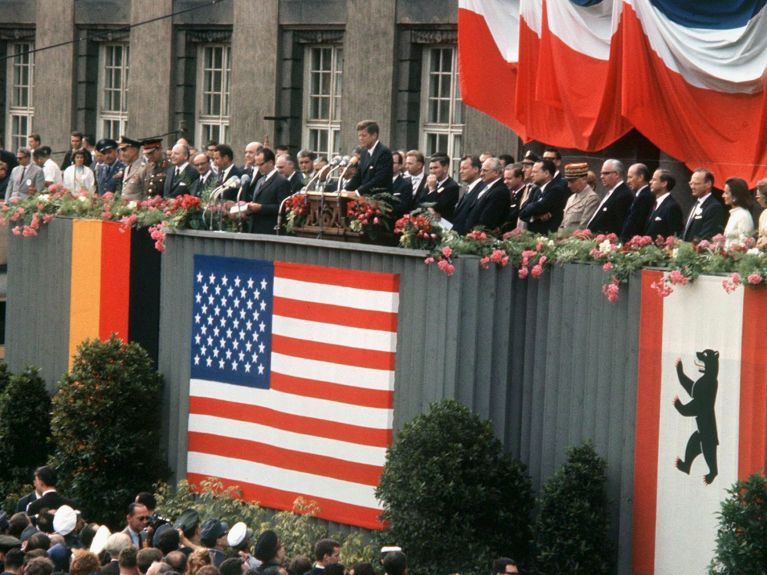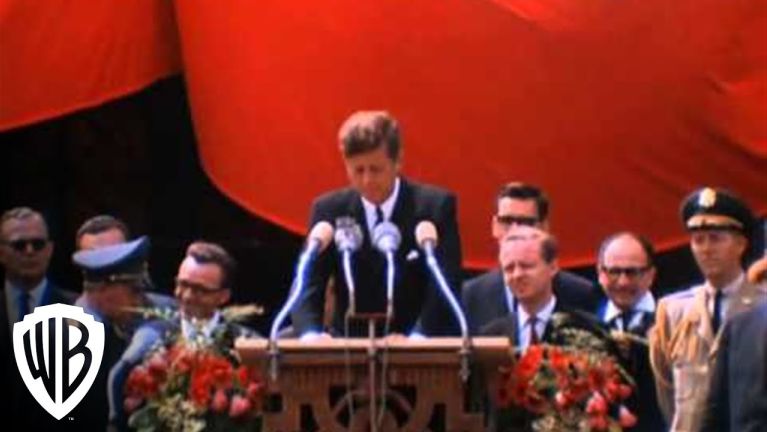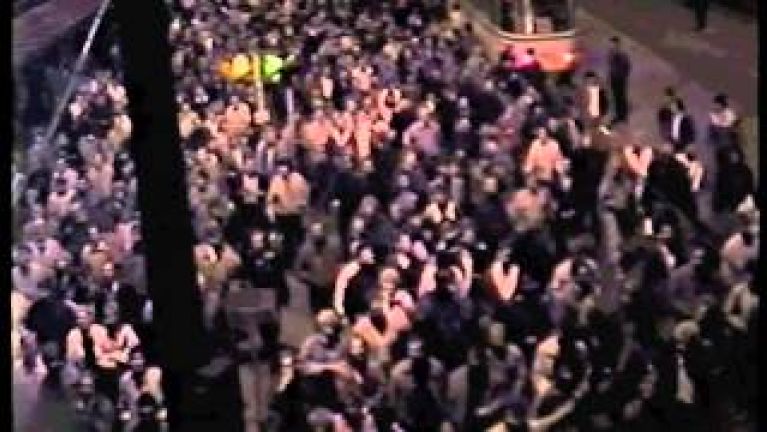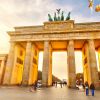The sound of German history
German post-war history was dominated by the country’s division. Here you can listen to some historic statements from this era.

You can listen to (and see) some historic moments in Germany’s post-war history here. This era was always dominated by the country’s division – the only other nation to have experienced anything similar is Korea. It came to an end on 3 October 1990 with the agreement of the allied powers who had emerged victorious from the Second World War.
“Ich bin ein Berliner” – John F. Kennedy, president of the USA
Dieses YouTube-Video kann in einem neuen Tab abgespielt werden
YouTube öffnenThird party content
We use YouTube to embed content that may collect data about your activity. Please review the details and accept the service to see this content.
Open consent formOn 26 June 1963, Kennedy made this statement of full solidarity with the Federal Republic of Germany while standing on the balcony of Schöneberg Town Hall in West-Berlin. His speech was broadcast live on German and US television and has historical significance as a steadfast commitment to democratic values and German-American friendship.
“Tear down this wall” – Ronald Reagan, president of the USA
Dieses YouTube-Video kann in einem neuen Tab abgespielt werden
YouTube öffnenThird party content
We use YouTube to embed content that may collect data about your activity. Please review the details and accept the service to see this content.
Open consent formOn 12 June 1987, US President Ronald Reagan, in a speech he gave in front of the Brandenburg Gate, called upon the Soviet leader Mikhail Gorbachev to tear down the Berlin Wall that had been erected in 1961. In January 1986, Gorbachev had initiated a fundamental reform of the Soviet Union, the buzzwords being perestroika and glasnost.
“We are the people” – 70,000 East Germans demonstrate in Leipzig
Dieses YouTube-Video kann in einem neuen Tab abgespielt werden
YouTube öffnenThird party content
We use YouTube to embed content that may collect data about your activity. Please review the details and accept the service to see this content.
Open consent formThe push for freedom and democracy really gathered pace in the GDR during the “Monday demonstrations” that were relatively small when they began in September 1989. By the time that around 70,000 people took to the streets in Leipzig on 9 October 1989, they had become an unstoppable mass movement. The chant “We are the people” highlighted the contrast to the state authorities. The only images of this historic demonstration were filmed secretly by Siegbert Schefke and Aram Radomski and passed onto the media in West Germany.
“…immediately, without delay.” – Günther Schabowski, Secretary for Media Affairs of the GDR
Dieses YouTube-Video kann in einem neuen Tab abgespielt werden
YouTube öffnenThird party content
We use YouTube to embed content that may collect data about your activity. Please review the details and accept the service to see this content.
Open consent formOne month later, at a press conference on 9 November 1989, Günter Schabowski read out a somewhat unclearly worded note that had been handed to him more or less by chance. He interpreted it to mean that anyone who wanted could leave the GDR. Until that point, anyone wishing to exit the country had been harassed, those who were caught leaving illegally were harshly punished, while people in the process of trying to escape were shot at. When asked when the new regulation would come into force, he said, after a brief hesitation: “ … immediately, without delay.” This prompted thousands of people to flock to the border, and that night the Berlin Wall fell after 28 years.
You would like to receive regular information about Germany? Subscribe here:






